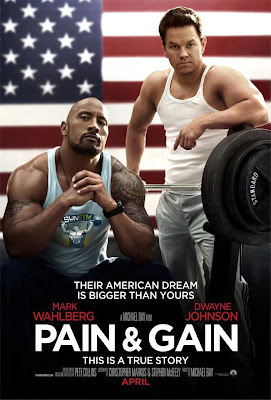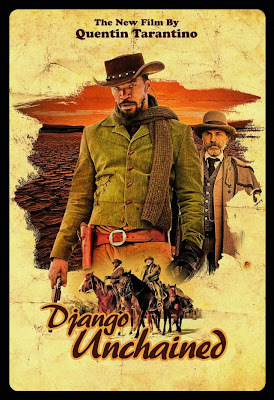Take On ‘Life Itself’ Even After The Balcony Has Closed (Movie Review)
Life
Itself: Thumbs Up
Roger
Ebert: It’s not what a movie is about,
it’s how it is about it.
Roger Ebert was a force
to be reckoned with when it came to film criticism, and I was very saddened by
his death in April, 2013. The
documentary film Life Itself, an
adaptation of the late film critic’s memoir and a look at the last few months
of his life, puts his story front and center, with no one more fitting than
Steve James (director of Hoop Dreams,
one of Ebert’s favorites) to be the one to direct the film. The film is rife with stories and insight
about the life of Roger Ebert, as far as his career as a writer and onwards
goes, with plenty of interviews to back up a truthful look at a man who was not
perfect, but certainly a huge influence and impressive figure when it came to
what he accomplished. This is a documentary
for many film fans, as they may not have been shaped by Ebert’s film criticism,
but it has certainly been a factor, while he had his time to say something
about cinema.
This is a documentary
that is pretty self-explanatory, so there is not much need to go into how it
plays out, beyond mentioning that it weaves in and out from the past overview
to the “present” time period (2012/early 2013), as we see Roger Ebert and his
loving wife Chaz take a handle over the situation, where Roger’s thyroid cancer
continues to impact his health. What is
worth noting is where the film begins and what it really covers. This is less a film about the films that
Ebert praised, criticized, or otherwise during his career and more about what
got him there and the relationships he had on the way.
As we quickly learn, as
well-educated and insightful as Ebert could be, he was in no way a perfect man,
with stories of his drinking days, depictions of his temper, and other aspects
that clearly present him as what he was:
human. Director Steve James does not
shy away from presenting a mortal, rather than a saint. We hear from his friends, families, and
admirers, all describing what they felt about Ebert. It certainly comes from a place of love, but Life Itself is about presenting the
facts, as opposed to a person that Ebert was not. This most clearly comes from the sections of
the film that detail his relationship to film critic Gene Siskel, who passed
away back in 1999.
What helps is how
seeing clips and outtakes from the various shows Siskel and Ebert hosted are
very funny. These guys were really nasty
to each other at times, which can be uncomfortable to some, but is surely a
break from some of the more troubling footage.
I was taken aback by emotions at time, as I do have a lot of admiration
for Ebert and it can be hard to see life take its course in unfortunate ways. Getting to re-visit famous fights the two
have had does a lot to keep me centered, let alone looking back at the times
when I would watch these two discuss movies on the weekend. By allowing a deeper look at this
relationship, we not only get to see respect paid to Gene Siskel, but are
provided with a representation of what true friendship can really be sometimes.
Hearing from many
others that had some kind of relationship with Ebert helped to keep this film
very entertaining as well. Martin
Scorsese and Werner Herzog are key examples of big-time filmmaker who had a
great friendship with the man, even when it came to not providing a high level
of praise (or sometimes complete dismissal) for some of their films. Having a lot of time spent with Chaz Ebert is
a great way for the film to open up as well.
Especially given the choices Ebert made in his younger life, which
included scripting the film, Beyond the
Valley of the Dolls, known more for its sexuality, as opposed to the
satirical commentary it was going for.
All of these aspects are just a part of what it is to reflect on Roger
Ebert’s life.
If anything, I only
wish we could hear more from director Steve James. While he is the man behind the camera, given
how much Ebert has surely factored into the life of this filmmaker he great
admired (enough to be having him direct his life story), I would have liked to
hear what he had to say about Roger.
With that said, we do get plenty of information from younger filmmakers
that Roger spoke up for or wished nothing but greatness for, combined with
stories about his effect on the industry and other aspects that provide plenty
of perspective. Getting to see clips
from some of the films he admired most, overlaid with excerpts from his
reviews, almost feels like extra content that we are just lucky to have go with
this fairly low-key, but accessible and well-made doc.
It is interesting to
read what others have had to say about Life
Itself. I say that because, much like
I have done, those who have written about it have all reflected on how they
have been influenced by Ebert in some way.
Yes, many of the reviews I read come from those younger than Ebert, but
have gone on to write about films in a similar manner to Ebert’s everyman
approach to film criticism, but regardless of how much know-how people may have
about film, Ebert surely factors in, in some way, as he had a large effect on
the state of film criticism, especially in America. I, myself, do not prefer to read reviews,
before I see a film, but Life Itself
presents something different for a lot of people who are cinefiles or whatever
they describe themselves as, as it seems more like a chance to openly look back
on someone important and share something more personal than they may be used to
doing. Perhaps that is not the case, but
regardless, Roger Ebert had an effect on what I do and I respect the man for
it, let alone feel very happy to have seen a film that provides a true goodbye.
Roger
Ebert: There are no guarantees. But there is also nothing to fear. We come from oblivion when we are born. We return to oblivion when we die. The astonishing thing is this period of
in-between.
Aaron
is a writer/reviewer for WhySoBlu.com.
Follow him on Twitter @AaronsPS4.
He also co-hosts a podcast, Out Now with Aaron and Abe, available via iTunes or at HHWLOD.com.
He also co-hosts a podcast, Out Now with Aaron and Abe, available via iTunes or at HHWLOD.com.










Comments
Post a Comment